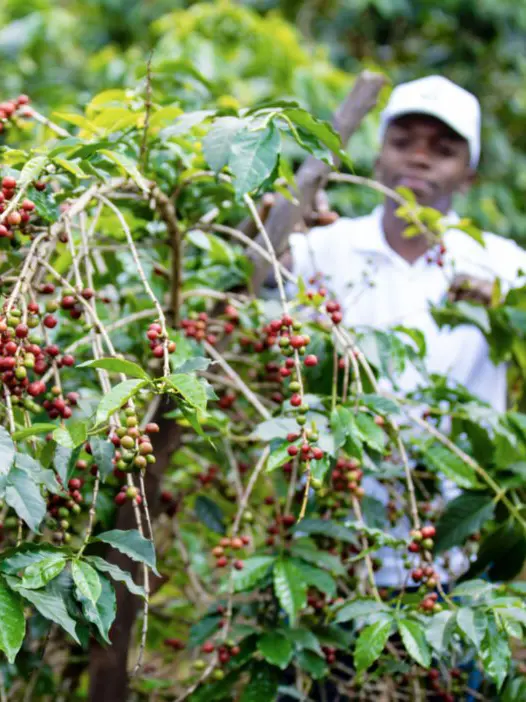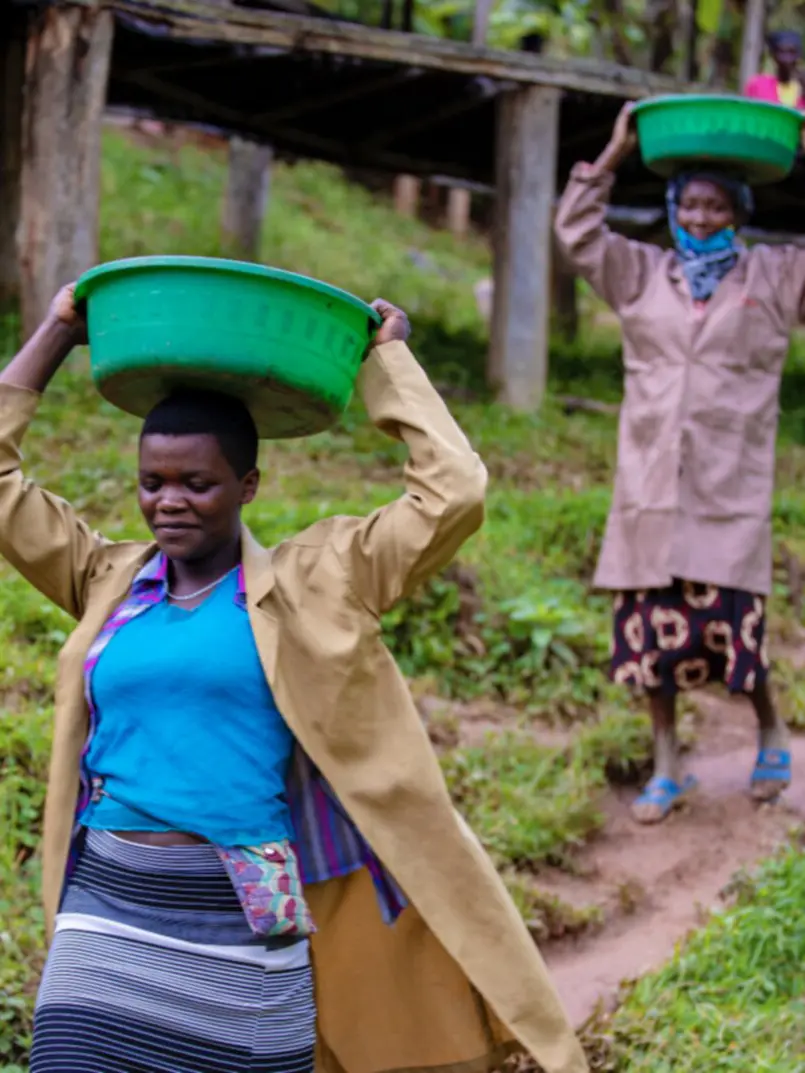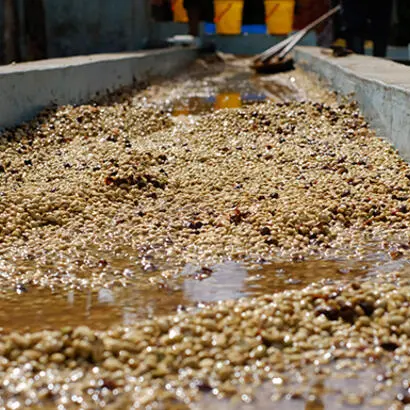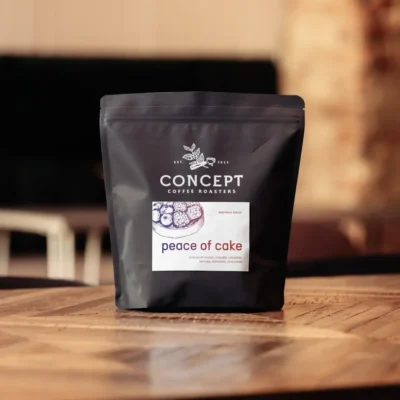Kenya Kii
Kii Factory is one of three owned and operated by Rungeto Farmers Cooperative Society (FCS). Rungeto has over 850 members, many of whom deliver cherry to Kii. The factory itself was constructed in 1995, nestled at the foot of Mt. Kenya. The Kii River, which runs nearby, gives the factory both its name and clean water for washing fine, Fully washed coffees.
In recent years, great efforts have been made to improve and ensure coffee quality from Kii. These measures are evident in the consistently complex and clean coffees produced.


Processing in Kenya
Smallholders selectively handpick only ripe cherry and deliver it to Kii Factory. At intake, the Cherry Clerk oversees meticulous visual sorting, accepting only dense, ripe cherry. The quality for which Kii coffee is known is directly impacted by this stringent approach to detail.
After intake, cherry is pulped and fermented for approximately 16-24 hours, depending on ambient temperature at the time. Following fermentation, coffee is washed in clean water from the Kii River and soaked for 12 hours. Newly installed tiles in the washing channels help preserve coffee and water quality, and all water used in processing is also cleaned by filtering in earthen pits before being reintroduced to local waterways.
After washing and grading, parchment is laid to dry on raised beds. Workers rake parchment frequently to ensure even drying. They cover drying parchment during the hottest time of day, to maintain slow, even drying and at night, to shelter parchment from moisture. It takes approximately 14 days for parchment to dry.
About this coffee
Cupping score: 87.50
Processing station: KII factory
Producer: around 850 smallholders
Region: Kirinyaga
Altitude: 1700 – 1900 MASL
Variety: SL28, SL34
Processing: washed
Variety
SL28 – SL28 was bred by Scott Laboratories in 1931 from Tanganyika D.R. It has become very popular throughout Kenya and is recognised as a variety of exceptional cup quality. It has wide leaves with coppery tips, and the beans are wide.
SL34 – SL 34 is a mutation of French Mission, originating from the plantation of Loresho in Kabete. SL34 has wide leaves with bronzy tips. It is widely grown throughout Kenya. SL34 is valued for its high productivity in different climate conditions and great height ranges. It is also claimed to be resistant towards drought and strong rainfall.
Kenyan washed process
Kenyan coffees are first de-pulped to remove the fruit from around the bean, then are fermented and washed—sometimes in more than one cycle of both—and soaked in water. The beans are then dried and rested on specially built raised beds.















